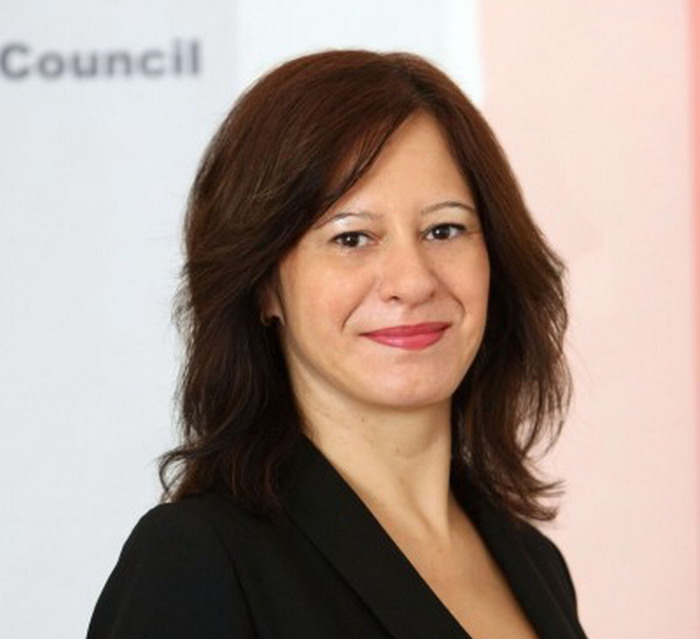As representatives of foreign businesses in Serbia, we would like to send a strong message to the European administration that it is important that it supports Serbia in its reform endeavours

Following a number of regular visits to European institutions, the Foreign Investors Council (FIC) has recently organized meetings in Brussels for the fourth consecutive time. We are talking to the FIC’s Executive Director, Ana Firtel about the FIC’s effort in helping Serbia during the country’s European integration process.
This is a fourth time that the Foreign Investors Council has set meetings in Brussels. What was your motive to get involved in this process?
— We are an association with 2/3 of its members coming from the EU, while the rest operate on the European markets. We recognize our unique role and responsibility for sharing the knowledge about how to do business in Serbia and in the EU, and in this way, help the European integration process to become simpler and more efficient. To that end, we are talking to both sides; first and foremost, to the Serbian authorities, and then to the representatives of the European Commission and other European institutions. On the back of that, we met with the chief negotiator from the Serbian side, Ms Tanja Miščević before we left for Brussels.
Just prior to the news that Serbia could open several new chapters, you visited Brussels and talked to the representatives of the European Commision about the issues related to Serbia’s effort in the EU accession process. What were specifically the topics of your conversation?
— The main topic of our talks was how to help Serbia to respond to the economic criteria during its EU accession process, i.e. how to have a functional market economy and be able to cope with competitive pressure. As represenatives of foreign, but mostly European businesses in Serbia, with these meetings we would like to send a strong message to the European administration that it is important that it supports Serbia in its reform endeavours through the accession process itself, and through various forms of assistance. We have also given our view of the current business climate in Serbia and our suggestions on how to improve it, especially through the mechanism of accession talks.
In which segments of Serbia’s efforts on harmonizing its business environment with the the European norms can the FIC contribute the most, and which issues should be highlighted at this moment?
— Bearing in mind that we assemble over 130 companies from more than 30 sectors, we can help in all areas. At the same time, we think that there are areas that should be given priority. In order to fulfill the criteria for functional economy, there has to be regulation in place that would enable safe and fast construction of new production facilities, good labour regulation, predictable tax rules, modern laws that enable digitalization and e-commerce without much red tape, and efficient bankruptcy legislation. In terms of the criteria for coping with competitive pressure, there are several important issues to tackle – inspection supervision, accepting European certificates, and modernizing the regulation on food safety and on foreign currency operations. We advocate at least gradual opening of the market because by postponing market liberalization, the ability of domicile companies / market to endure competition is being reduced which, short-term, can seem as a good solution, but mid- and long-term, will only yield negative effects.
Which of these issues is the task force, that you’ve formed with government, dealing with?
— As with everything that we do, there is a full overlap which speaks volumes about our consistency. The aforementioned topics are the topics that the task force for implementation of recommendations from the White Book, which we have formed together with the government, is dealing with. Tax policy, or rather procedures and predictability of the tax system, is the topic that we consider exceptionally important. The second topic is labour legislation, i.e. primarily the further modernization of the Labour Law and regulating the work done by recruitment agencies. The third important topic, where Serbia has made serious progress, is real estate and construction, with the focus on good implementation. The fourth topic is inspection and food safety, and the fifth e-commerce and digitalization. In the last few days, the Serbian Parliament has been debating about the Law on Electronic Document which should bring substantial progress in this segment.
Last but not least, there are the topics like bankruptcy and foreign currency operations. The bankruptcy regulation should enable a clean and functional market, while the regulation on foreign currency operations should be liberalized.
Considering that FIC has been active in Serbia for 15 years now, what is the Council’s view on the quality of reforms in Serbia and building a functional market economy?
— Positive developments are evident in the period from 2002 to 2017. Objectively speaking, Serbia has had a lot of challenges on its path, and had to deal with many issues parallel with economic challenges. However, what gave us the biggest satisfaction in these last 15 years is the fact that the EU accesion course was constant in Serbia in a sense of gradual implementation of the principles of the open market economy. During this period, the Serbian government was open to talking to foreign investors and there was progress made, although we would have liked it to have been more pronounced.